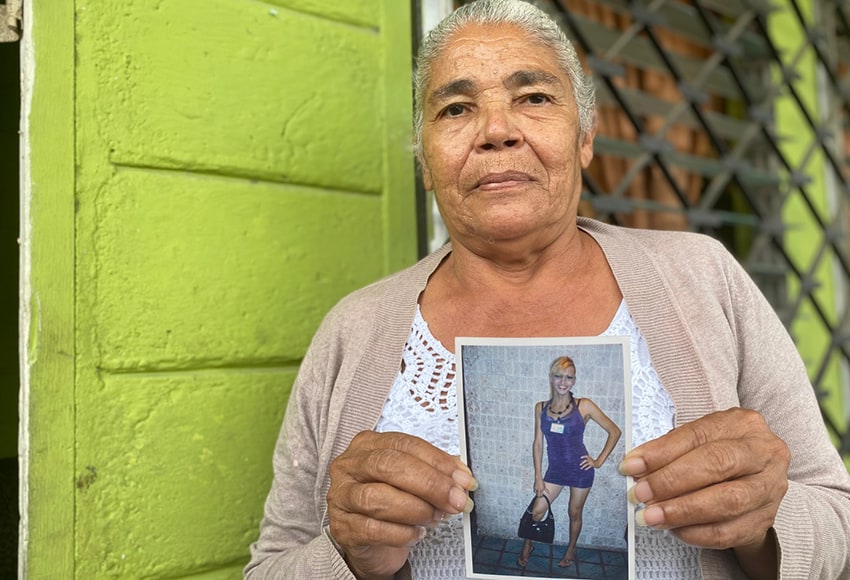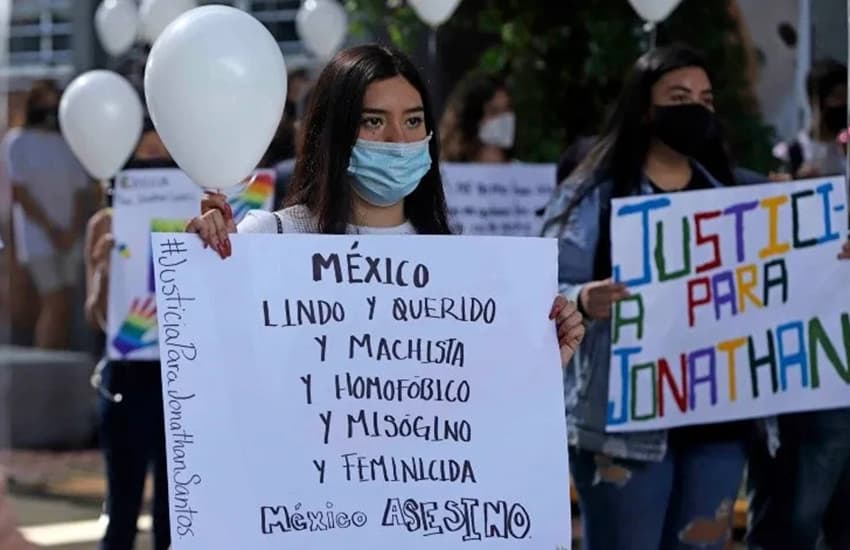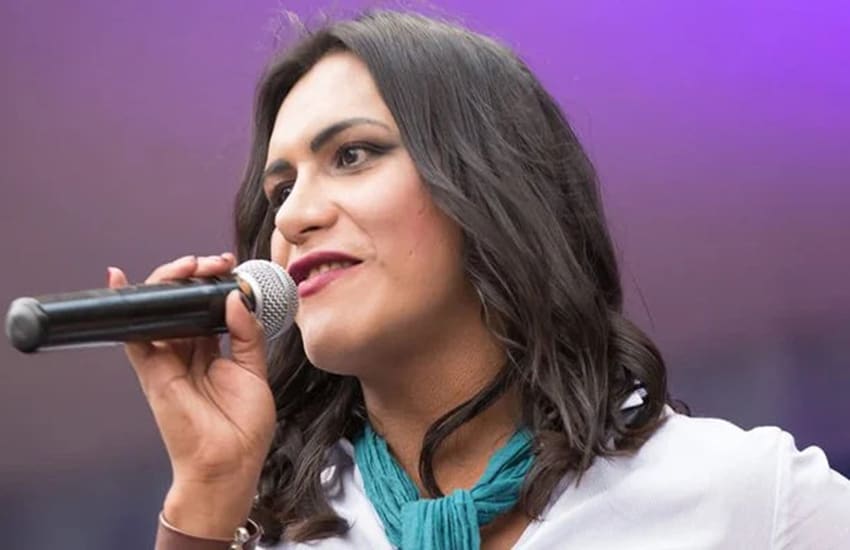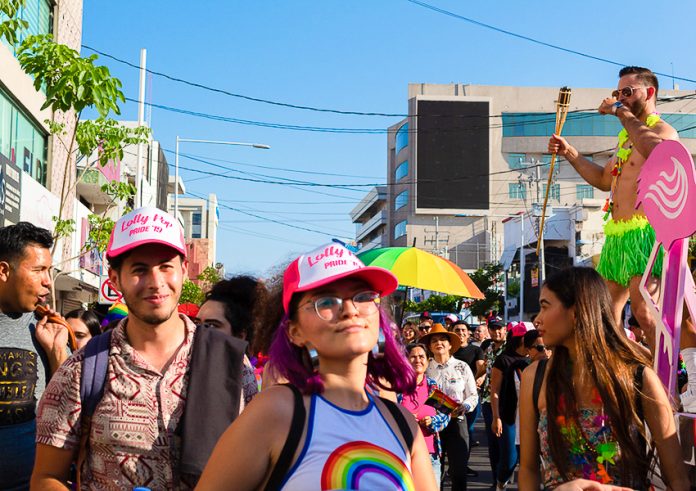Across Latin America, the legal advances of the rights of the LGBTQ+ community over the past decade have been celebrated as a standout example of increasing — albeit gradually — regional open-mindedness.
As was recently seen with the abortion debate in Argentina at the beginning of this year, what happens in one country in Latin America will have profound effects in another, for good or for ill — from Argentina to Ecuador and, lately, from Honduras to Mexico.
What a series of updated legal changes masks, however, is a culture that retains a general lack of acceptance and international notoriety for the highest rates of violence towards sexual minorities, as well as the highest homicide rates of LGBTQ+ people.
Nowhere has this issue been highlighted more of late than in Honduras, where the federal government was found earlier this month to be legally responsible and accountable for the murder of trans woman and activist Vicky Hernández in 2009.
Nobody was ever charged for the murder — a single gunshot to the head — so Honduran LGBTQ+ advocacy group Cattrachas commissioned lawyers to seek justice. The case was handled by the Costa Rican-based Inter-American Court on Human Rights.

The Inter-American Court, headquartered in San José, Costa Rica, upholds and promotes the basic rights and freedoms of individuals across Latin America and rules on whether a state has violated an individual’s human rights.
The resulting report on Vicky Hernández’s case, published on the 12th anniversary of Hernández’s death, found the Honduran government responsible for failing to prevent and then later investigate and prosecute the death of a trans person. It marks the first time the highest regional human rights court has held a state accountable for the murder of a trans person.
But while the case itself is about Hernández’s death, what it represents is a wider need to fight against systemic discrimination issues across Latin America.
Honduras has the world’s highest rate of murders of trans people, but as a region, too, Latin America has the highest number worldwide of murders of transgender people.
A 2020 report found that between October 2018 and November 2019, Brazil registered the highest number of murders of trans and gender-diverse people, at a staggering 152 out of the 286 murders that occurred across the whole of Latin America.
Mexico was the second deadliest country, registering 57 of these sorts of homicides during the same period.

The question at hand is not whether the Vicky Hernández case will have ramifications across Latin America, as cases like this generally capture broad political interest, but specifically what kind of precedent it will set.
Like many Latin American countries, Mexico is a predominantly Catholic, religiously conservative nation, where the LGBTQ+ community’s access to rights has historically been uneven and dozens are killed in homophobically motivated hate crimes every year.
The cultural issue of the LGBTQ+ community’s rights has been an increasingly present one here since the early 1970s, when the political left, and to an extent feminist organizations, followed the lead of the United States’ gay liberation movement and doubled down on efforts to bring positive change and visibility to the community.
But the increasing visibility of LGBTQ+ issues is to some extent a double-edged sword in Mexico and regionally. More exposure means more opportunity for rejection by fundamentalist sectors, as well as the invitation to increased criticism by the Catholic Church, which feeds into the entrenched stereotypes that persist across much of the nation.
In 2020, at least 79 LGBTQ+ people were murdered in Mexico on the basis of their sexual orientation or gender identity, contributing to a total of 459 murders over the past five years. Despite the fact that the 2020 figure is down 32% from 117 murders in 2019, it should be remembered that 2020 was by no means a normal year.
The decrease in registered homicides in Mexico is as likely to be a result of the fact that public activities ceased almost completely as it is because there was a 32% uptick in public tolerance of the LGBTQ+ community. As the country tentatively reopens its doors, there is a possibility that the figures will skyrocket once more.

Moreover, notwithstanding the fact that a horrifyingly large number of homicides go completely unreported, homophobically motivated murders are also often lumped in with figures on robberies, assaults and straightforward murders. Many go uninvestigated as a result, and the systemic institutional bias against the LGBTQ+ community remains unexposed. Those that are categorized amongst LGBTQ+ homicide figures are frequently characterized by appalling brutality, in which victims suffered violence at the hands of their murderers before they were killed.
Yet, it would be a misrepresentation to say that all is doom and gloom for the rights of the community in Mexico. There is good cause for hope that the prosecution of the Honduran state will have positive benefits. Already more than 100 LGBTQ+ political candidates, striving for greater rights, took part in Mexico’s June 6 elections.
The nation’s first two trans congresswomen, María Clemente García and Salma Luevano, both Morena candidates, are now in office as a result.
Although the Morena/Lopez-Obrador banner under which they ran — known for siding with conservatives on same-sex marriage issues — raises some questions, it is a huge departure from earlier elections to see so many candidates embracing their identities as they pursue a political career.
In a country where the vast majority of murders go unsolved and unpunished, and where an epidemic of femicides has sparked protests from Mexico City to Cancún, long-term queer activism of the kind seen in Honduras is the only way to fight against the cultural stigma of coming out as LGBTQ+.
The path to equal rights and equal acceptance for all people — regardless of their gender, sexual orientation or self-expression — is a rocky and uneven one. But the key to reaching the end is continuing to forge down it and continuing to speak up for those who are in too much danger to do so themselves.
Shannon Collins is an environment correspondent at Ninth Wave Global, an environmental organization and think tank. She writes from Campeche.
